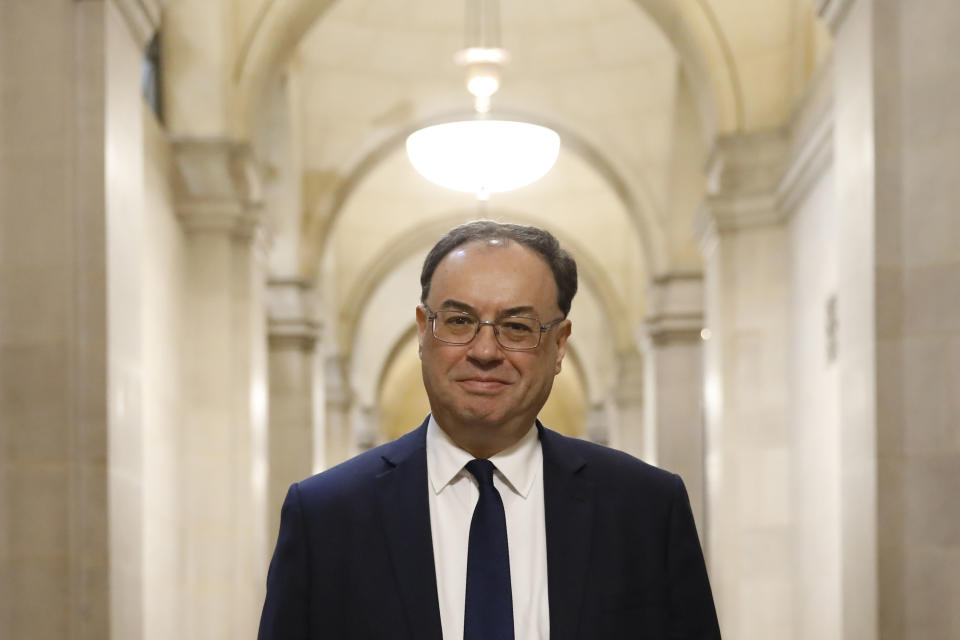Bank of England's Bailey: Negative rates best in 'economic upturn'

Bank of England governor Andrew Bailey has given more hints about when the central bank might deploy negative interest rates, if it chooses to do so.
Speaking at an event on Sunday, Bailey said interest rates below zero tended to be most effective when economies were already in the early stages of economic recovery.
“Our assessment of negative interest rates, from the experience elsewhere, is that they probably appear to work better in a more wholesale financial market context, and probably better in a nascent economic upturn,” Bailey said during a webinar, according to the BBC.
Watch: What are negative interest rates and how do they work?
The comments add to speculation that the Bank of England could be poised to push the UK’s interest rate below zero for the first time in history.
Threadneedle Street recently began preparatory work to ensure it would be ready to adopt negative interest rates if needed. The central bank has also written to commercial banks to make sure their systems are ready to cope with negative rates.
Read more: Bank of England stokes negative interest rate speculation
The Bank of England cut the UK’s interest rate to a record low of 0.1% as the COVID-19 pandemic first struck in March, leaving it little headroom to spur inflation and growth through interest rate policy. Financial markets predict interest rates in the UK will turn negative within the next 12 months.
Bailey has said publicly that negative interest rates are in the Bank’s “box of tools” but insisted the policy is not close to being adopted.
Bailey said on Sunday that policymakers were battling “unprecedented level of economic uncertainty” and warned that risks were “heavily skewed towards the downside.” The comments came during an event for central bankers organised by the Group of Thirty, a panel of economists and senior bankers.
Read more: 'Record level' of uncertainty for UK economy, warns Bank of England governor
The Bank of England’s Monetary Policy Committee — which sets interest rates and decides monetary policy — will next meet on 5 November. Forecasters expect the group to leave interest rates unchanged but to increase the size of the Bank of England’s bond buying programme in an attempt to spur growth.
Watch: Why tax rises may be inevitable in Britain

